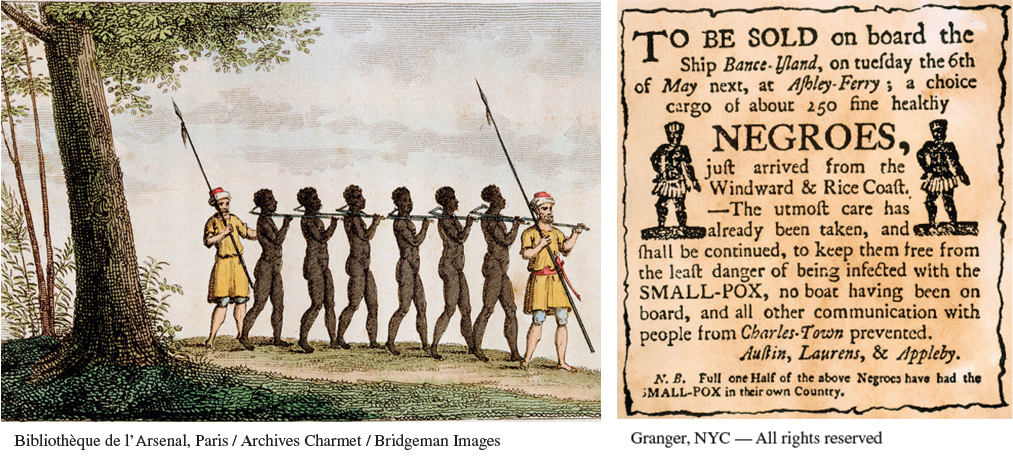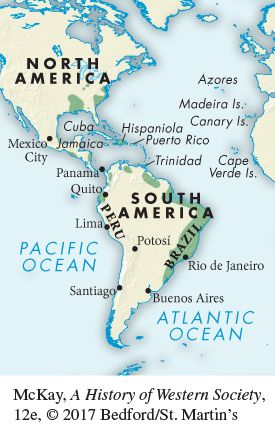A History of Western Society: Printed Page 562
A History of Western Society, Value Edition: Printed Page 543
A History of Western Society, Concise Edition: Printed Page 564
The Atlantic Slave Trade
At the core of the Atlantic world were the misery and profit of the Atlantic slave trade. The forced migration of millions of Africans — cruel, unjust, and tragic — was a key element in the Atlantic system and western European economic expansion throughout the eighteenth century. The brutal practice intensified dramatically after 1700 and especially after 1750 with the growth of trade and demand for slave-


The rise of plantation agriculture was responsible for the tremendous growth of the slave trade. Among all European colonies, the plantations of Portuguese Brazil received by far the largest number of enslaved Africans over the entire period of the slave trade — 45 percent of the total. Another 45 percent were divided among the many Caribbean colonies. The colonies of mainland North America took only 3 percent of slaves arriving from Africa, a little under four hundred thousand, relying mostly on natural growth of the enslaved population.
Eighteenth-
Some African merchants and rulers who controlled exports profited from the greater demand for slaves. With their newfound wealth, some Africans gained access to European and colonial goods, including firearms. But generally such economic returns did not spread very far, and the negative consequences of the expanding slave trade predominated. Wars among African states to obtain salable captives increased, and leaders used slave profits to purchase more arms than textiles and consumer goods. While the populations of Europe and Asia grew substantially in the eighteenth century, the population of Africa stagnated or possibly declined. As one contemporary critic observed:
I do not know if coffee and sugar are essential to the happiness of Europe, but I know that these two products have accounted for the unhappiness of two great regions of the world: America has been depopulated so as to have land on which to plant them; Africa has been depopulated so as to have the people to cultivate them.14
Most Europeans did not personally witness the horrors of the slave trade between Africa and the Americas, and until the early part of the eighteenth century they considered the African slave trade a legitimate business. But as details of the plight of enslaved people became known, a campaign to abolish slavery developed in Britain. (See “Evaluating the Evidence 17.3: Olaudah Equiano’s Economic Arguments for Ending Slavery.”) In the late 1780s the abolition campaign grew into a mass movement of public opinion, the first in British history. British women were prominent in this movement, denouncing the immorality of human bondage and stressing the cruel and sadistic treatment of enslaved women and families. These attacks put the defenders of slavery on the defensive. In 1807 Parliament abolished the British slave trade, although slavery continued in British colonies and the Americas for decades.